
A true keto diet requires planning
Following the ketogenic diet requires knowing the exact ratio of macronutrients—such as grams of carbs vs. fat vs. protein—you’re putting in your body. “Overall, only about 5 percent of your daily calories should come from carbs and about 15 percent or so from protein,” says Josh Axe, DNM, CNS, DC, of DrAxe.com, and co-founder of Ancient Nutrition. The rest of your calories should come from fat. “Sticking with the right ketogenic macronutrient ratio can make meal planning and eating out a bit tricky at first. But once you get the hang of it, it’s pretty simple to prepare high-fat ketogenic meals for yourself or to ask restaurants to make some basic adjustments, like replacing all starchy sides with veggies and leaving off any bread or bun.”

You may feel lousy at first
The ketogenic diet—which was traditionally used to treat epilepsy, but has recently become extremely popular for weight loss and overall health—is considered safe for most people. That said, you may feel a bit under the weather when you first make the switch. When you stop eating carbs, the body’s source for quick energy, and begin to burn fat for fuel, your body enters a state of ketosis. “It’s typical to experience some symptoms at first—sometimes called the ‘keto flu’—which can include headaches, low energy, cravings, weakness, and brain-fog,” says Dr. Axe. “Not everyone feels lousy when starting the diet, but if you do, don’t panic and try to be patient.” The good news? The symptoms will subside within a few days or at most, a couple of weeks. Here’s what you need to know before starting the keto diet.
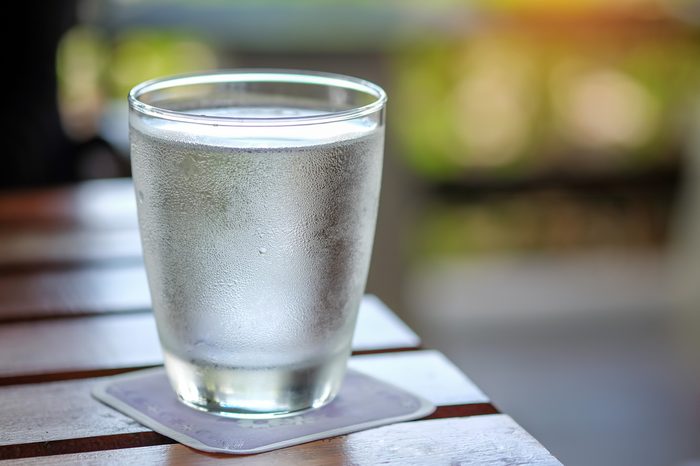
Initial weight loss is often water weight
Many people see a quick drop in numbers on the scale when they first start keto, but unfortunately, it’s not usually due to fat loss. “In the beginning, the weight loss is mostly water weight and some muscle loss,” states Naresh Rao, DO, partner at Sports Medicine at Chelsea and head physician for the USA Men’s Water Polo Team.
It will take a couple of weeks before your body starts to truly lose fat, and sometimes people end up burning muscle instead. “If you do not eat enough calories, which is possible since you may lose your appetite for fat, you may continue to lose muscle due to the fact that your body will break it down to get the calories it needs.” By maintaining the proper ratios of fat, protein, and carbs as well as eating enough calories, you can avoid this common pitfall. Read up on what everyone gets wrong about the keto diet.

The keto diet might not be a great choice for all athletes
On a related note, there is limited evidence that people who are concerned with athletic performance can benefit from the keto diet. “For strength and conditioning athletes, generally speaking, no good data supports use of the ketogenic diet,” says Rushabh Modi, MD, MPH, assistant professor of clinical medicine at Keck School of Medicine of USC. That means if you’re into weightlifting, CrossFit, or even HIIT workouts, you probably won’t see better performance on the diet. “However, there is some emerging insight that aerobic or endurance athletes may benefit, and this is where the diet may have more promise,” Dr. Modi adds. These are the foods successful keto dieters never eat.
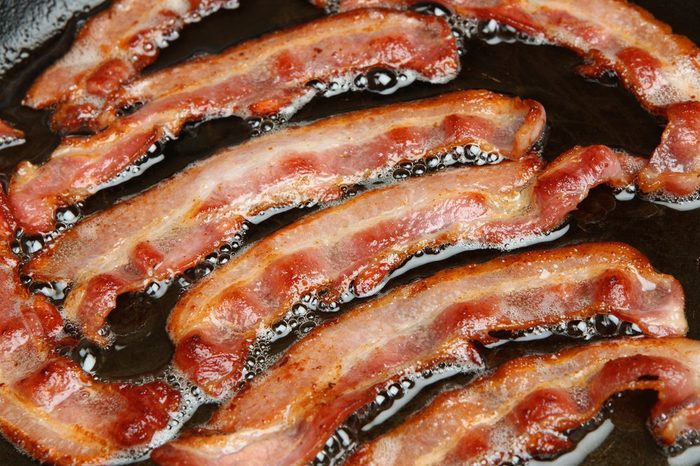
It’s not an excuse to load up on butter and bacon
Many people see keto as a free pass to see butter as a health food and eat animal foods over plant-based ones, but that’s not necessary in order to achieve ketosis. “A ketogenic diet does not have to be heavy on butter and meat,” says Jeff Stanley, MD, a physician with Virta Health. “In fact, many of my patients are vegetarians and do very well on it.”
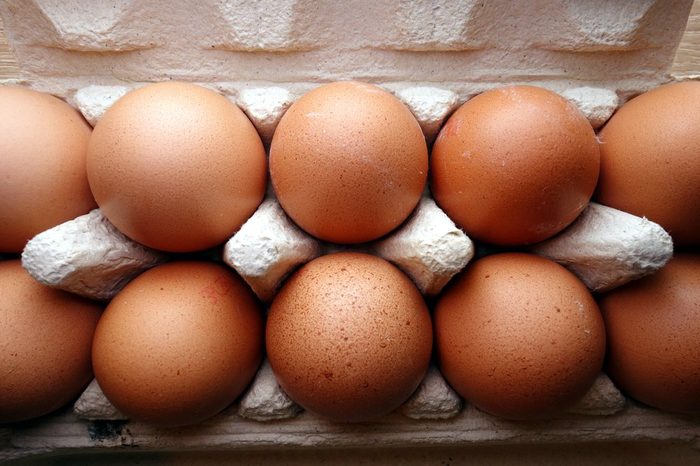
Overeating protein is a no-go
Conventional diet knowledge is that the more protein we eat, the better, but with keto, that’s not the case. “We have been told for decades to cut fat,” says Colin Champ, MD, author of Misguided Medicine, assistant professor and radiation oncologist at the University of Pittsburgh Medical Center. “Now we are cutting carbs. It is a natural tendency to turn to protein, the middle ground, as a safety net. However, too much protein in the diet can stall ketosis. Instead, a successful ketogenic dieter will turn to healthy fat sources to support his or her metabolism.” Here’s help finding the right weight loss plan for you.

Check with your doctor before you start
“Although this diet is very safe for most people, I urge caution and recommend medical supervision in people taking medications for diabetes or high blood pressure,” Dr. Stanley says. “There are generally rapid improvements in patients following a ketogenic diet, and without medically-supervised reductions in medications, there is a risk of low blood sugar or dizziness.” Plus, a doctor can help you track the improvements the diet is causing through blood tests and other monitoring techniques. That way, you can get hard facts about whether or not the diet is working for you. Here are 10 signs you’re sabotaging your weight loss.
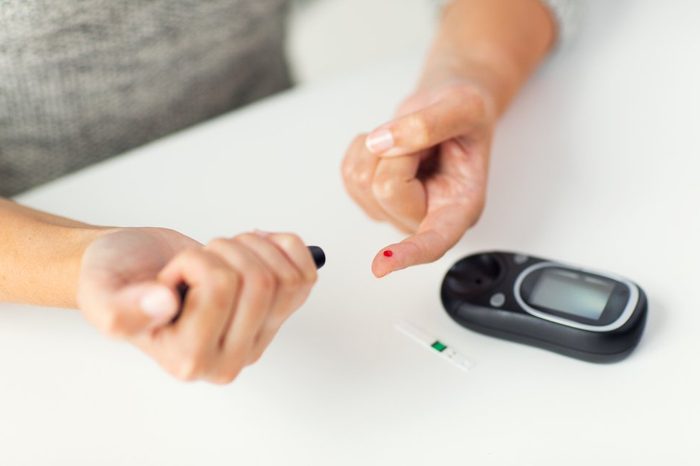
It’s especially promising for people with type 2 diabetes
“A ketogenic diet has been shown to improve blood sugar control for patients with type 2 diabetes, at least in the short-term,” says Saurabh Sethi, MD, MPH, a doctor specializing in gastroenterology, hepatology, and advanced interventional endoscopy. The only drawback? Unfortunately, we don’t really know what happens to people who are on the diet long term. “Long-term data on the efficacy and safety of a ketogenic diet is lacking,” Dr. Sethi says.

The keto diet isn’t magic
It’s common for trendy eating styles to be touted as “miracle diets,” and keto is the latest. While it does have some legitimate health benefits, it’s certainly not the only good diet option out there. “There are few real ‘hacks’ to losing weight,” Dr. Modi points out. “The internet world has reduced human metabolism to the following: carbs cause insulin, which causes fat storage. The rise in popularity of the keto diet menu speaks to this notion. In reality, the body’s processing of nutrients is much more complicated and involves many hormones, neurotransmitters, and other physiological processes—many of which scientists are still actively investigating.”
A growing body of research suggests that probiotics may help. These are the best probiotics for weight loss.
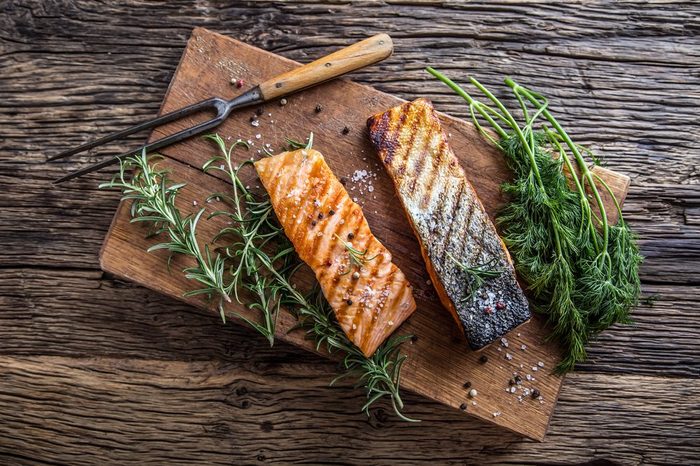
For the best results, focus on whole foods
“Some people are simply focused on cutting carbs and eating lots of fat on the keto diet, but I recommend that you make a real effort to stick to eating whole, unprocessed foods,” Dr. Axe says. “Always try to purchase organic, high-quality foods when possible—especially grass-fed, pasture-raised, wild-caught, and free-range animal products. This is hugely beneficial for your overall health because it means you’ll be cutting out empty calories and inflammatory foods like processed meats, low-quality dairy, sugar, and refined grains. These foods take a major toll on your energy, moods, and mental health.” In fact, Dr. Axe says that food quality is one of the reasons studies have shown that the ketogenic diet offers protection against neurological and neurodegenerative diseases that are associated with inflammation in the brain. These are the only two diets most people are able to maintain long term.

A low-sodium diet and the keto diet don’t mix
When carbs are cut, the body loses salt and with that salt, water,” Dr. Champ says. Remember that whole water-weight loss thing from earlier? “Salt is necessary within a ketogenic diet to account for these losses.” He recommends seasoning food with a good mineral-rich salt, such as sea salt or Himalayan salt. Does the bone broth diet work for weight loss? Here’s what to know.
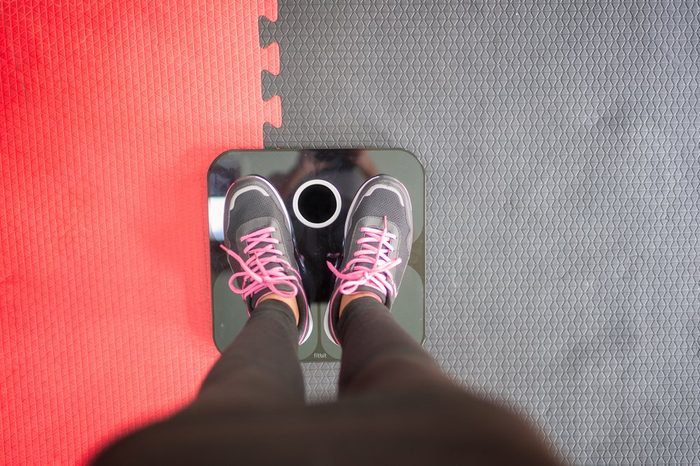
If you have a history of an eating disorder, steer clear of this diet
There’s no way around it: This eating style is restrictive. “In the extreme, diets like the keto diet can actually predispose vulnerable people to full-blown eating disorders,” says Alexis Conason, PsyD, a licensed psychologist. “While not everyone who diets develops an eating disorder, most people suffering from eating disorders say that their eating disorder was triggered by a diet plan. Dieting is a factor that intersects with other predisposing factors (like genetics), and can set the wheels in motion for a full-fledged eating disorder.” If this is sounding familiar, Dr. Conason recommends focusing on health over weight, which can help put you in a healthier headspace.

keto is not necessarily better than other diets for long-term weight loss or health
If lasting weight loss is your primary goal, you should choose the eating style you think you can sustain long term. “Research shows good evidence of faster weight loss when patients go on a ketogenic diet compared to participants on a more traditional low-fat diet or even a Mediterranean diet,” Dr. Sethi says. “However, that difference in weight loss seems to disappear over time.” In other words, the keto diet hasn’t been shown to be better for weight loss than other diets years down the line.
And if overall health is your concern, the same advice rings true: “A balanced, unprocessed diet, consisting of fruits and vegetables, lean meats, fish, whole grains, nuts, seeds, olive oil, and lots of water seems to have the best evidence for a longer, healthier life,” Dr. Sethi says.
Ready to get started? Here’s the best keto diet menu for beginners.
